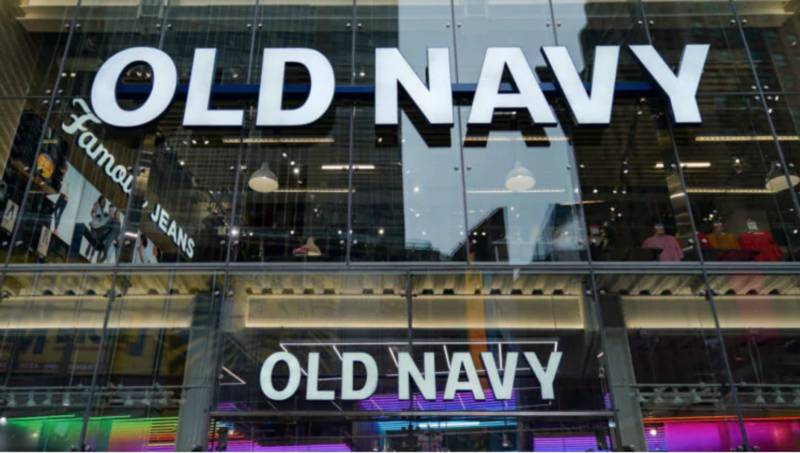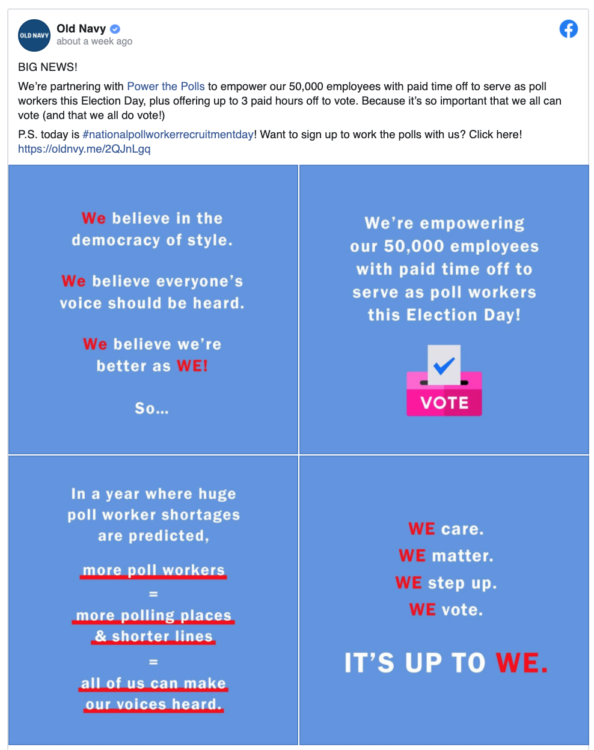Old Navy to pay employees to work election polls
Share
Explore Our Galleries
Breaking News!
Today's news and culture by Black and other reporters in the Black and mainstream media.
Ways to Support ABHM?
The retailer joins the effort to get out the vote.
By Blue Telusma, thegrio.com
This week Old Navy has announced that it plans to pay its employees to work at the polls during November’s presidential election.
This week Old Navy has announced that it plans to pay its employees to work at the polls during November’s presidential election.

Signage for an Old Navy store stands at the entrance to a store in Times Square, March 1, 2019 in New York City. (Photo by Drew Angerer/Getty Images)
“This is a critical moment. America is in the midst of a nationwide poll worker shortage,” reads the official website created for this initiative. “Most poll workers are over the age of 60 and, in the era of uncertainty caused by the coronavirus, fewer are signing up for the job.”
“The consequences have already been felt in several recent primaries, where poll worker shortages led to long lines and voter disenfranchisement. For example, 95% of past poll workers in Anchorage, Alaska, declined to work the polls this year (source) and the state of Kentucky consolidated in-person voting in each county to a single polling place during the primary due to poll worker recruitment concerns.”
Read the full article here.
Read about voting rights issues past and present here and here.










Comments Are Welcome
Note: We moderate submissions in order to create a space for meaningful dialogue, a space where museum visitors – adults and youth –– can exchange informed, thoughtful, and relevant comments that add value to our exhibits.
Racial slurs, personal attacks, obscenity, profanity, and SHOUTING do not meet the above standard. Such comments are posted in the exhibit Hateful Speech. Commercial promotions, impersonations, and incoherent comments likewise fail to meet our goals, so will not be posted. Submissions longer than 120 words will be shortened.
See our full Comments Policy here.